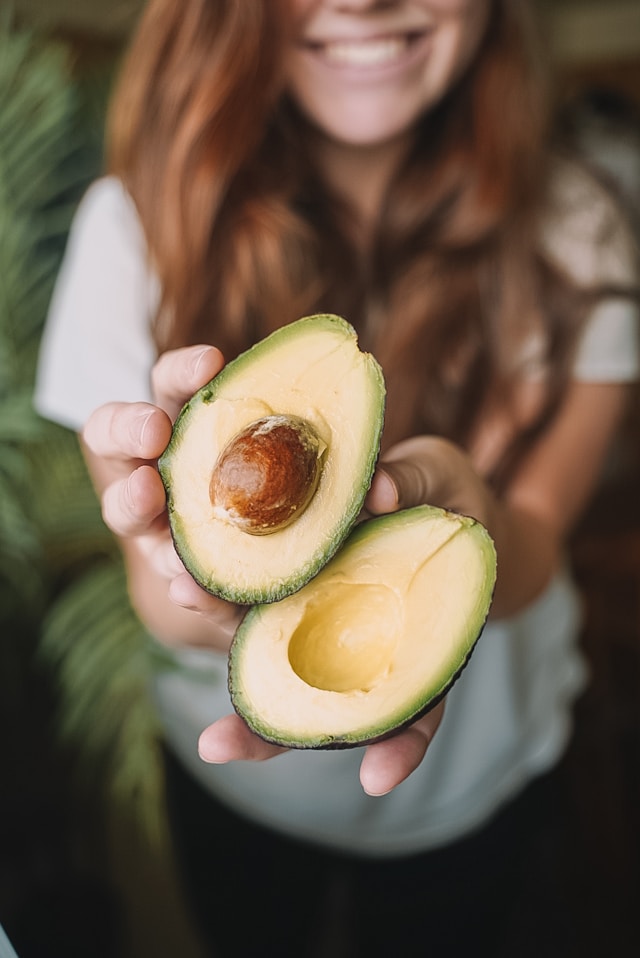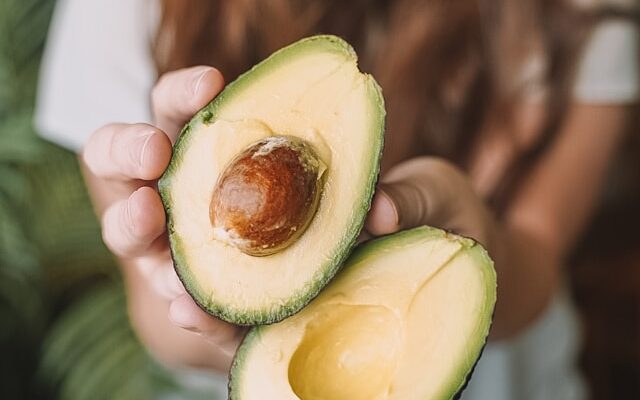Get ready to have your mind blown! You may have thought that fats are the bad guys of the nutrition world, but it turns out that they’re actually essential for maintaining our overall health! From boosting brain function to helping our bodies absorb vital nutrients, fats play a crucial role in keeping us healthy and happy. And the best part? Not all fats are created equal, and some of them are downright good for you! So don’t be fooled by the low-fat craze of the past – it’s time to embrace the power of healthy fats and include them as part of your balanced diet. But don’t just take our word for it – read on to discover the fascinating world of fats and learn how you can make smarter choices for your health.

How much healthy fat should I eat?
The American Heart Association suggests that your fat consumption be between 25 and 35% of your total daily calories. Based on a 2,000-calorie diet, this equals about 80 grams of fat per day. But here’s what you should know: not all fats are created equal. You want to go for the ones that will help your body stay healthy, rather than those that have little nutritional worth.
Why are good fats important?
Fat is one of the three macronutrients, with protein and carbs. The assumption that fat should be avoided at all costs is out of date and completely incorrect. Fat protects your organs, allowing you to absorb nutrients from other foods, even those that your body cannot make on its own. It supplies energy, allows your body to create specific hormones, aids in temperature regulation, and much more.
Fat contributes to the flavor of food. Finding joy in eating is beneficial to our mental health. Furthermore, fat makes us feel full and satisfied, which typically prevents us from mindlessly eating.
What are trans fats?
The three types of fat are trans fats, saturated fats, and unsaturated fats. Trans fats receive a lot of criticism for being bad fat, which is completely deserved. These are the artificial fats that food manufacturers have added to processed foods. Our bodies do not require them, and they effectively give no nutritional value to us. The problem with trans fats is that they enhance your bad cholesterol while decreasing your good cholesterol.
The FDA has prohibited trans fats, but some processed foods still contain trace quantities. Often, if it weighs less than a gram and so does not require a nutritional label, it can be used to circumvent the ban. While consuming trans fats in such little amounts should have no effect on the ordinary person, it is recommended to avoid or restrict these processed foods as much as possible and stick to natural foods, which are the best way to optimal nutrition in most cases.
What are saturated fats?
Saturated fat occurs naturally in whole foods such as dairy, red meat, cured meats, poultry, eggs, and plant oils. It also tends to be high in fried dishes and baked goods because of the oils and butter or butter-like items used in their preparation. Saturated fats should be consumed in moderation.

Many saturated fat-rich meals are nutritionally dense. While you don’t want to avoid saturated fats totally, you should restrict your intake because they can elevate your cholesterol, increasing your risk of heart disease.
Keeping your saturated fat intake to around 5-6% of your total daily calories as recommended by The American Heart Association, which is a modest amount. However, there is one caveat: some recent studies reveal that not all saturated fat is equally hazardous. Specifically, those derived from dairy products such as yogurt, milk, or butter may be less dangerous.
What are unsaturated fats?
Unsaturated fats are typically regarded as beneficial fats, particularly those strong in omega-3s. This category contains foods like olives, avocados, nuts and seeds, and fatty seafood like salmon and sardines. The foods that are high in healthy fats can possibly help decrease the the development of heart disease, improve blood cholesterol levels, aid in blood sugar control, and reduce inflammation.

However, you do not need a lot of fat to reap these benefits. Even good fats are heavy in calories, so you should limit your meal amounts to preserve general health. The less desirable foods in this unsaturated group are high in Omega-6 fatty acids, such as soybean, corn, and safflower oils, which have poorer nutritional value and are commonly found in salad dressings and processed snacks.
How should I include healthy fats to my everyday diet?
It’s crucial to remember that obsessing over a low-fat diet can lead to bad food choices, as people prefer to choose for more sugary and highly processed meals. Whole foods always outperform processed meals in terms of nutrition, and certain fat, particularly unsaturated fat, is not only beneficial to our health but essential for survival. So savor that guacamole, delicious piece of salmon, or olive oil dressing—you’ll need it to survive and prosper!
What happens if you don’t consume enough fat?
- Nutrient deficiencies: Fat-soluble vitamins (A, D, E, and K) require fat for absorption. Without enough fat, your body may struggle to absorb these vital nutrients, resulting in shortages.
- Hormonal Imbalance: Fat is required for hormone synthesis. Inadequate fat consumption can disturb hormonal balance, affecting several biological systems such as metabolism, mood, and reproductive health.
- Dry Skin and Hair: Fats provide vital fatty acids, which aid to preserve skin and hair health. A shortage of fat in the diet can cause dry, flaking skin and brittle hair.
- Reduced Brain Function: The brain is mostly made up of fat and requires a regular supply of lipids to function properly. Inadequate fat intake might impair cognitive function and mood.
- Weakened Immune System: Fats play an important part in immune function, and a lack of them might impair your body’s ability to fight infections and illnesses.

8 interesting facts about fat:
- Our fat cells shrink when we lose weight, but they do not disappear. If we regain weight, these cells can expand again.
- The brain is made up of approximately 60% fat and requires a consistent supply of healthy fats to function correctly.
- Fat has a higher calorie density than carbs, with 9 calories per gram against 4 calories per gram. That is why high-fat foods are typically higher in calories.
- A pound of fat and a pound of muscle weigh the same, but muscle is denser. Basically, a pound of muscle takes up less space than a pound of fat, leading to a leaner appearance.
- Omega-3 and Omega-6 fatty acids are essential fats that our bodies cannot produce on their own. They play vital roles in brain function, growth, and development.
- Fat serves as a critical energy reserve for our bodies, storing excess energy from food for later use when needed.
- Fat acts as an insulator, helping to maintain our body temperature and protect our organs.
- Men and women tend to store fat differently. Women often have more fat storage in the hips and thighs, and men tend to store more fat in the abdomen.
Closing Thoughts from One Motion Forward:
In conclusion, fats are not the enemy, but rather an important component of a balanced diet. They serve an important part in a variety of biological functions, including energy production and cell proliferation. Gaining an understanding of different types of fats and how including healthy fats in your diet can enhance your overall health and well-being. So, the next time you plan your meals, keep in mind that fats are not to be avoided, but rather welcomed as an essential nutrient for a well-balanced diet.
Step into Your Stride: Accept the Journey with One Motion Forward!
